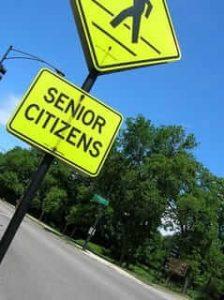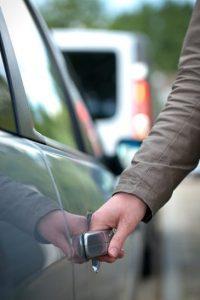
Over the next 20 years, the number of drivers 70 and up is predicted to triple as the Baby Boomer generation ages. Many elderly drivers match their driving habits to their declining capabilities. For example, reaction times become longer or the ability to see at night weakens.
Be Proactive to Stay Safe
To take care of yourself as you age, or to protect loved ones, AARP has made the following recommendations while out on the road:
- Keep your eyeglass prescription up to date
- When driving during the day, wear high quality sunglasses and avoid having darkly tinted windows.
- Properly position all mirrors “ and use all of them when backing up, changing lanes, etc.
- Properly position your seat to ensure your vision is not obscured
- Avoid distractions, such as the radio or cell phone
- Avoid driving at night or in bad weather
- Never drive under the influence (This includes prescription medication!)
End of the Road
There will come a time for almost everyone where they realize they must limit or stop driving as their abilities change with age. Again, AARP suggests taking note of the following warning signs that senior drivers should limit or stop driving:
- Almost crashing, with frequent near misses
- Finding dents in your car, fence, garage door, etc.
- Getting lost in familiar locations
- Misjudging the distance between your vehicle and another, or between your vehicle and other objects
- Repeated incidents where other drivers honk or complain about you
- Repeated warnings/tickets for traffic infractions
AARP offers driver safety courses to help senior citizens stay on the road longer and safer. Please visit the AARP official website if you or a loved one has concerns over senior driver safety and age.
Questions?Call 800-537-8185
to find a Morris Bart office near you.





